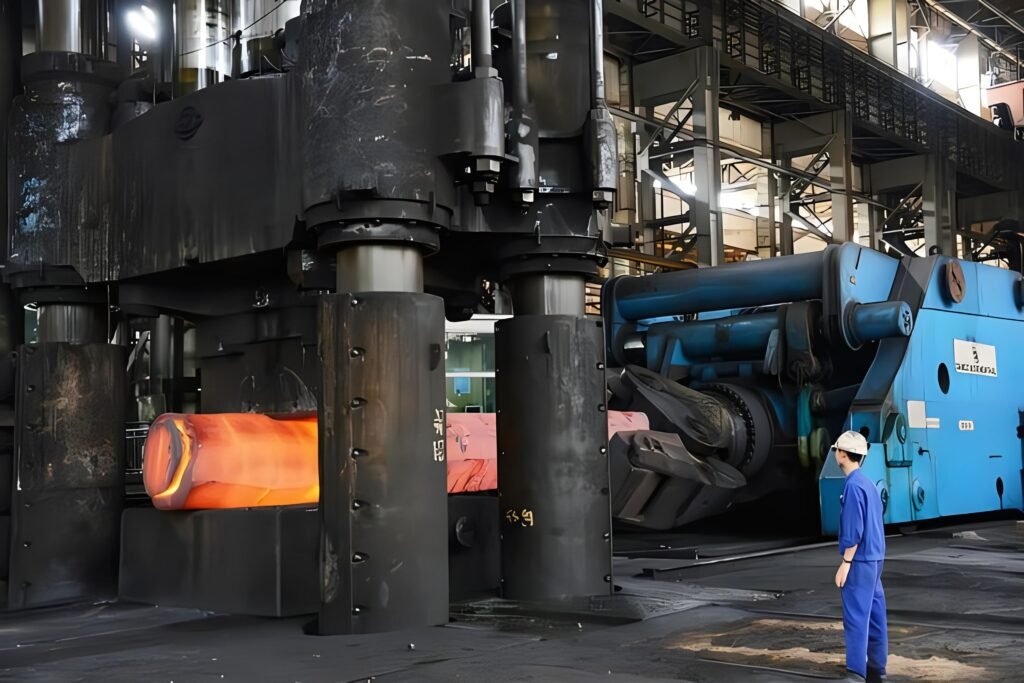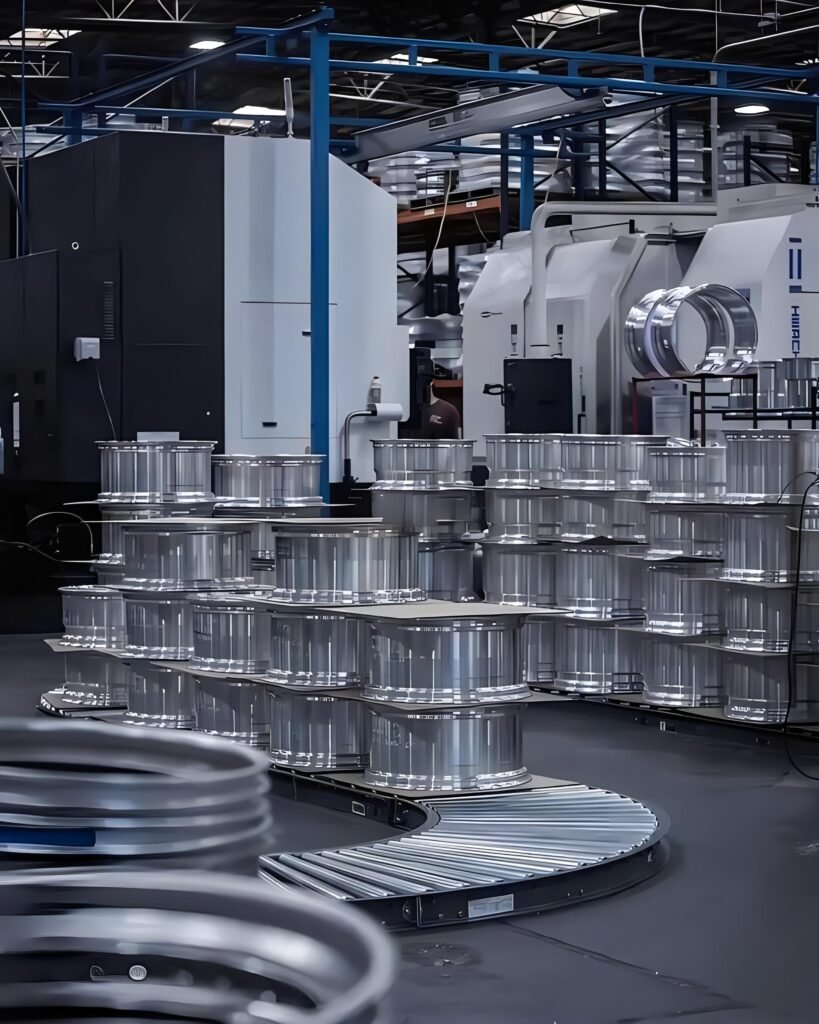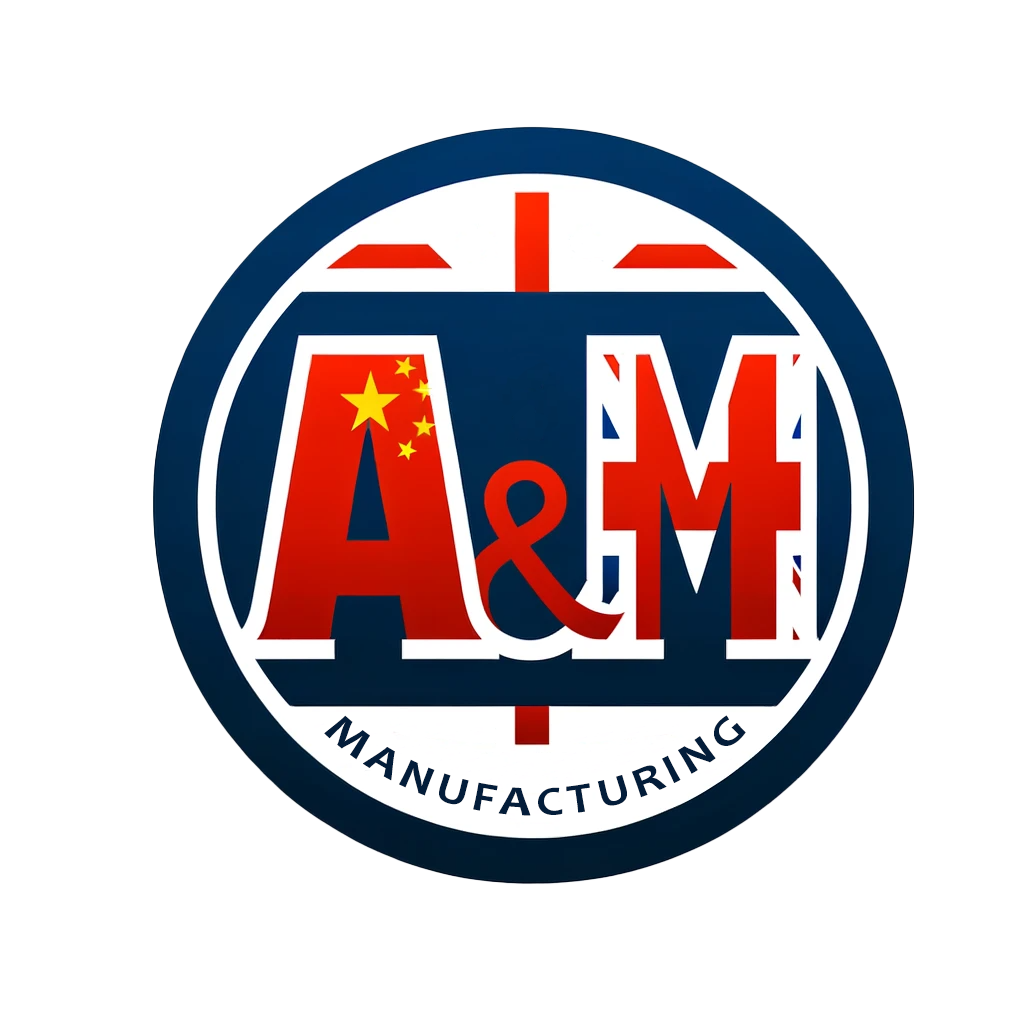Address
2 Porters Mews
Codicote, Hertfordshire SG4 8US
Send An Enquiry
info@manufacturingsolution.co.uk
Forging is a manufacturing process that involves shaping metal using localised compressive forces. It is one of the oldest known metalworking processes, traditionally performed by a blacksmith with a hammer and anvil. Nowadays, this technique is carried out using powered equipment such as hydraulic presses, hammer mills, or forge presses, which exert much higher forces and are capable of producing more complex shapes and finer details.
Its process can be categorised into three main types:
1. Cold Forging
Performed at or near room temperature, which increases the strength of the metal through work hardening. It is typically used for smaller parts and can produce a high surface finish and excellent dimensional control.
2. Warm Forging
Carried out at temperatures between room temperature and about half the metal’s melting point. This process offers a good balance between the ease of shaping and the final properties of the metal, making it suitable for parts requiring moderate strength and precision.
3. Hot Forging
Performed at temperatures above the metal’s recrystallisation temperature. This method allows for the shaping of large and complex parts, as the high temperatures increase metal ductility and reduce resistance to deformation. Hot forging is commonly used for steel, aluminium, and brass.
Forging, as a manufacturing process, offers several significant advantages that make it a preferred choice for producing strong, reliable parts across various industries. Here’s a detailed look at the key benefits:
1. Superior Mechanical Properties
Forging enhances the mechanical properties of metal, such as strength, toughness, and fatigue resistance. The process aligns the metal grain with the part shape, improving its overall structural integrity. This results in parts that can withstand higher loads and stresses, making them ideal for critical applications in aerospace, automotive, and industrial machinery.
2. Improved Metallurgical Properties
The controlled deformation during forging refines the grain structure of the metal and closes porosity, which can lead to improved metallurgical properties. This grain flow adjustment enhances the wear resistance and durability of the forged parts. Additionally, the thermal cycle of hot forging eliminates pre-existing microstructural defects, further improving the material properties.
3. Versatility
Forging can be applied to a wide range of metals and alloys, including carbon and alloy steels, aluminum, titanium, and nickel-based alloys. This versatility allows for the production of parts with specific characteristics tailored to their intended use, whether it’s for high-strength applications, corrosion resistance, or high-temperature environments.
4. Reduced Material Waste
Compared to machining and other subtractive manufacturing processes, forging produces minimal waste. The metal is deformed to near-net shapes, which maximizes material usage and reduces the need for excess material. This efficiency not only lowers material costs but also contributes to environmental sustainability by minimizing waste.
5. Economic Production for High Volume
For large production runs, forging can be highly economical. Once the initial setup and tooling costs are covered, the cost per part is relatively low, especially when compared to machining from solid stock. The durability of forging dies also contributes to long-term cost savings, as they can withstand the production of thousands of parts before needing replacement.
6. Enhanced Reliability and Consistency
Forged parts exhibit consistent material properties and dimensional accuracy across batches, ensuring reliable performance. The process’s inherent nature allows for tight control over dimensions, leading to parts that require minimal finishing and fit perfectly into their designated assemblies.
7. Heat Treatment Compatibility
Forged parts are highly responsive to heat treatments, such as quenching and tempering, which can further enhance their mechanical properties. The uniformity of the forged microstructure ensures that heat treatments are applied evenly, achieving predictable and uniform results that improve performance and longevity.
8. Reduced Need for Finishing Operations
Due to the near-net shape capability of forging and the fine surface finish it can achieve, there’s often a reduced need for finishing operations. While some applications may require additional machining for precision features, the overall need for extensive finishing is lower compared to other manufacturing processes.
At A & M Manufacturing Company Ltd, we are proud of our extensive forging capabilities, which position us as leaders in the metalworking and foundry industry. Annually, we export over 10,000 tonnes of forged components worldwide, demonstrating our capacity and expertise in catering to the diverse needs of various sectors.
In-House Tooling design: With 30 years of manufacturing experience, we are capable of designing toolings for various manufacturing purposes including forging, our tooling design ability positioned us as a leading forged parts supplier and solutions provider.
Partnered Foundries: Our success is underpinned by partnerships with 3 advanced foundries, each featuring state-of-the-art facilities. These foundries are equipped with sophisticated production lines and equipment, including hydraulic forging presses (including a 10000 ton hydraulic press), mechanical forging presses, hammer forging presses(air and steam hammers), ring rolling machines, induction heating systems and automatic handling and transfer system, enabling us to undertake large-scale and intricate projects with precision and efficiency. The adoption of cutting-edge technology ensures the maintenance of high-quality standards and the ability to meet quick turnaround demands.
Wide Range of Techniques: A & M Manufacturing Company Ltd offers a comprehensive array of techniques, including:
Specialties and Customised Solutions: We excel in delivering custom solutions and specialise in various forging processes, including the production of forged wheels. Our forged wheels are renowned for their durability, precision, and performance, catering specifically to automotive and transport applications where safety and reliability are crucially important.
Material Expertise: We forge a wide range of materials, including carbon steel, alloy steel, stainless steel, aluminium, and titanium, ensuring the best material selection for every application.
Quality Assurance: Our commitment to quality is unwavering, with rigorous quality control measures in place at our partnered foundries and comprehensive testing to meet international standards, including ISO certifications.
Flexible Production Capabilities: Our advanced equipment and skilled workforce enable flexible production from small batches to high-volume orders, all while upholding the highest standards of quality and precision. We are capable of producing forged parts ranging from 5 kg to 6 toones, with a maximum length of 12 metres.

Unparalleled Capabilities:
We have 3 partnered foundries in China capable of producing forged parts ranging from 5 kg to 6 tonnes, with a maximum length of 12 metres.
Great Product Variety:
We are capable of supplying all types of forgings suitable for various applications and industries, including forged shafts, forged wheels, ring forgings, hollow forgings, forged discs, valve bodies, flanges and many more.
In-House Tooling Design:
One of our renowned abilities, with over 30 years of experience, is that we can develop tooling suitable for all shapes and designs.
Flexible Supplying Option:
With over 2,000 sqm of stockholding facilities in the UK, we offer customers flexible supplying options that greatly reduce production lead time in the long run.
Superior Quality:
All of our partnered foundries are ISO 9001 accredited. All products must be inspected by both our partners and ourselves in the UK.
Automotive
Railway Systems
Oil & Gas
Defence
Construction Machinery

